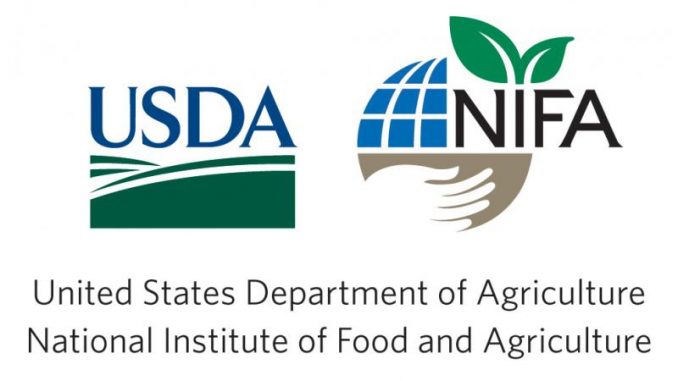
On March 28, 2018, the USDA National Institute of Food and Agriculture (NIFA) announced awards to provide food safety education for producers and processors affected by the Food Safety Modernization Act. Two North Carolina nonprofits received awards totaling $218,525.
Said NIFA Director Dr. Sonny Ramaswamy:
“Education and outreach are essential for the continued implementation of the Food Safety Modernization Act, as foodborne illness is both a public health problem and a threat to the economic well-being of any food system. With a multi-layered approach of multi-state, community outreach, and pilot projects, small farmers, wholesalers, and small-scale processors can increase their bottom line while meeting the critical need of food safety in the United States.”
Funding is provided through the NIFA’s Food Safety Outreach Program (FSOP). The FSOP supports projects that focus on the implementation of customized training to small and mid-sized farms, beginning farmers, socially-disadvantaged farmers, small processors, and small fresh fruit and vegetable merchant wholesalers. Awards are made under three categories: Multistate Education and Training Projects, Community Outreach Projects, and Pilot Projects.
Grantees announced include Carolina Farm Stewardship Association, known for their Farm Tours, and Brothers Excelling with Self-sufficiency to Thrive (BEST), an organization that seeks to address food insecurity and increase food safety knowledge in Guilford County, North Carolina, by using the Investigating Food Safety from Farm to Table curriculum to educate rehabilitated youth ages 16-24.
There are 25 awards totaling $4.7 million funded through the FSOP in fiscal year 2017. All are listed below.
Pilot Projects
Pilot Projects foster the development of new, high-impact food safety education that address the needs of non-traditional, niche, or hard-to-reach audiences, including those with cultural or language barriers. Awards:
- Brothers Excelling with Self-sufficiency to Thrive (BEST), Greensboro, North Carolina, $54,126
- University of California – Davis, Davis, California, $21,687
- Dakota College at Bottineau, Bottineau, North Dakota, $55,000
- Oklahoma State University, Stillwater, Oklahoma, $18,632
- Pennsylvania State University, University Park, Pennsylvania, $55,000
- University of Wisconsin, Madison, Wisconsin, $54,841
Community Outreach and Education
Community Outreach Projects support the expansion of current, local food safety education and outreach programs that are looking to expand.
- Carolina Farm Stewardship Association, Pittsboro, North Carolina, $164,399
- Auburn University, Auburn, Alabama, $152,603
- California Certified Organic Farmers Inc., Santa Cruz, California, $120,426
- University of California – Davis, Davis, California, $163,499
- FamilyFarmed, Chicago, Illinois, $84,277
- University of Florida, Gainesville, Florida, $164,993
- University of Kentucky, Lexington, Kentucky, $165,000
- Ohio State University, Wooster, Ohio, $200,000
- Oregon State University, Corvallis, Oregon, $199,899
- Tennessee State University, Nashville, Tennessee, $164,980
- Tuskegee University, Tuskegee, Alabama, $133,299
- Winrock International Inst. For Agric. Development, Arlington, Virginia, $165,000
Multistate Education and Training Projects
Multi-state food safety education and outreach programs support multi-county, state-wide, or multi-state.
- Alabama A&M University, Normal, Alabama, $450,000
- University of Arkansas, Fayetteville, Arkansas, $256,322
- NY Agricultural Expt. Station, Geneva, New York, $449,488
- Cornell University, Ithaca, New York, $396,644
- University of Georgia, Athens, Georgia, $366,152
- Global Growers Network, Inc., Stone Mountain, Georgia, $305,944
- University of Massachusetts, Amherst, Massachusetts, $398,442
NIFA reviews all proposals accepted in NIFA’s competitive grant programs through an external peer review process. Specific details on panel meetings, review formats, and evaluation criteria may vary among programs. NIFA’s mission is to invest in and advance agricultural research, education, and extension to solve societal challenges. To learn more about NIFA’s impact on agricultural sciences, visit www.nifa.usda.gov/Impacts.
Source: Selina Meiners, USDA National Institute of Food and Agriculture


